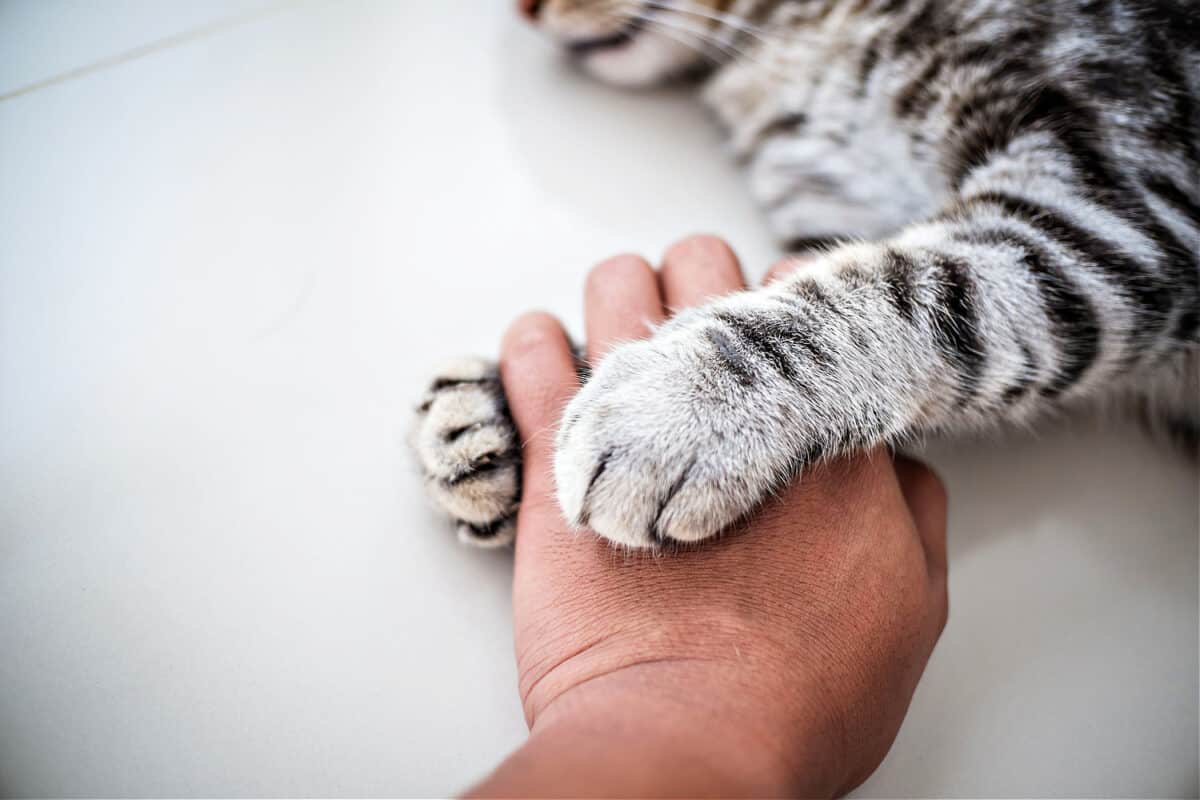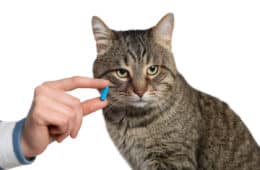Your cat's behavior seems off, and something in your gut tells you that something isn't right. Could it be poisoning? With so many potential hazards lurking around the house, it's a concern that pet owners can't ignore.
In this article, we'll explore the common signs that might indicate your cat has ingested poison, the usual sources of toxicity, and the critical steps you must take if you suspect poisoning.
We'll guide you through the process without giving away the immediate action needed, allowing you to understand the severity of the situation and the importance of professional care.
If you're facing a current emergency or just want to be prepared, this guide can help you.

Recognizing Signs of Poisoning in Your Cat
Cats are curious creatures, and their exploration can sometimes lead them into trouble. Knowing the signs of poisoning is crucial for any cat owner.
Quick recognition and immediate action can save your cat's life. In this section, we'll go over the symptoms that may indicate your cat has ingested a toxic substance.
Common Symptoms of Cat Poisoning
Look out for these symptoms if you suspect your cat has ingested poison. These signs might appear alone or in combination:
Neurological Symptoms
- Shivering/Tremors: Uncontrolled shaking might signal poison.
- Seizures: Convulsions are a serious sign of a toxic reaction.
- Paralysis (full or partial): Sudden loss of movement requires immediate attention.
Digestive Issues
- Vomiting: Throwing up could be a response to a harmful substance.
- Diarrhea (or loss of control over bowel movements and urine): Uncontrolled elimination is another red flag.
Respiratory Problems
- Difficulty Breathing: Struggling to breathe is an urgent warning sign.
Skin and Behavior Changes
- Inflammation of the Skin: Skin irritation might indicate external or internal exposure to toxins.
- Lethargy or Excitability: Changes in energy levels or unusual behavior can be symptoms of poisoning.
Your cat's well-being is in your hands. Be observant and know these symptoms by heart. If you notice any of these signs, act quickly and consult your vet. Early detection and proper veterinary care can make all the difference in a poisoning situation.
Responding to a Cat Poisoning Emergency
If your cat has ingested poison, knowing how to react quickly and calmly can be a lifesaver. This section outlines the essential steps to take if you suspect poisoning in your cat.
Emergency Steps to Take
In a cat poisoning emergency, every moment counts. Here's what you need to do:
Stay Calm
Don't Panic: Breathe deeply and keep your thoughts in order. Your cat needs you to be calm and focused.
Communicate with Your Vet
Call Your Vet Immediately: Describe the poison, and symptoms, and tell them you're on your way.
Gather Evidence
Collect Any Remains of the Poison: If possible, bring the plant, empty pill container, leftovers of the substance, or anything else that might help identify the poison.
Transport Your Cat Safely
Get Your Cat to the Vet ASAP: Place your cat in a carrier and head to the vet. If your regular vet is unavailable, go to the nearest emergency vet.
Avoid Common Mistakes
Do NOT Induce Vomiting or Use Home Remedies: These actions can be more harmful than the poison itself. Leave the treatment to the professionals.
If you've read through this without the pressure of an emergency, take the time to absorb these crucial tips. Familiarizing yourself with this guidance now ensures that you'll know exactly what to do should the unthinkable happen.
SIGN UP FOR THECATSITE'S EMAIL UPDATES >

Understanding Cat Poisoning: Causes, Risks, and Treatments
Cat poisoning is a serious concern for pet owners.
You need to understand the ways cats can get poisoned, identify the substances that are dangerous, and learn how to handle these situations.
Below, you'll find key information to help you protect your feline friend.
How Do Cats Get Poisoned?
Cats can ingest poison in various ways, each posing unique risks:
Direct Ingestion
- Swallowing Poison: Cats may swallow a poisonous substance directly.
- Eating Poisoned Prey: Consuming prey that has been poisoned can lead to indirect poisoning.
- Self-Grooming: Cats may ingest poison by cleaning themselves after coming into contact with a toxic substance.
- Skin Absorption: Certain toxins can be absorbed through the skin.
- Inhaling Fumes: Toxic fumes can also lead to poisoning.
Common Poisons that Affect Cats
Cats may have nine lives, but they are also finely attuned predators with sensitive internal organs. Many seemingly harmless substances can cause kidney, heart, or liver failure in cats.
The PetPoisonHelpline lists dozens of common substances that can be toxic to pets, many of which can be found in any average household.
These include:
- Obvious Toxins: Rat poison, Tylenol, and similar items are clearly dangerous.
- Unexpected Dangers: Some flowers, garlic, chocolate, and other seemingly harmless substances can cause severe problems.
Most cats know better than to chew on lilies, munch on onions, or drink antifreeze, but accidents can and do happen.
Curious cats, especially kittens, can chew on unfamiliar objects, and cats of any age can get their coat covered in toxic spills in the garage or try out deliciously-scented rat poison.
Even well-behaved cats might accidentally ingest these substances.

Time Frame for Poisoning Effects
This varies depending on the poison, method of delivery, and the size and medical condition of the cat.
Immediate Effects
- Some poisons act quickly, causing sudden and severe symptoms.
Gradual Onset
- Other toxins build up over time, mimicking other medical conditions, making diagnosis challenging.
Veterinary Diagnosis
Unless the cat was seen ingesting the substance, diagnosis can be very challenging. This is especially true with slow and gradual poisoning, as symptoms can mimic those of other medical conditions.
Your vet will probably ask about sources of poisons in the cat's environment and run blood panels to try and pinpoint the problem.
Treatment Options for Poisoned Cats
Your vet will decide on a course of treatment to counter the poison once they identify it.
Aggressive Therapy
- The vet may employ fluid therapy and active charcoal to counter the poison.
Antidotes
- The vet might use specific antidotes for particular types of poison.
Helplines
- Pet Poison Online: 800-213-6680 ($39 consultation fee)
- ASPCA Animal Poison Control Center: (888) 426-4435 ($65 consultation fee)
Protecting Your Cat from Poisoning
You must understand how cats get poisoned and how to respond for their well-being.
Stay informed about the risks and ensure that toxic substances are out of reach. In an emergency, consult your vet or the mentioned helplines. Your knowledge and vigilance can be vital in keeping your cat safe and healthy.
SIGN UP FOR THECATSITE'S EMAIL UPDATES >
Comments? Leave them using the comment section below. Questions about your cat? Post them in the cat forums.
The forums are the only place where you can get quick answers to your cat-related questions. Please do not use the comments section to ask questions about your cat.
Note: We may get commissions for purchases made through links on this page.




One comment on “What To Do If You Think Your Cat Ingested Poison [A Detailed Guide]”